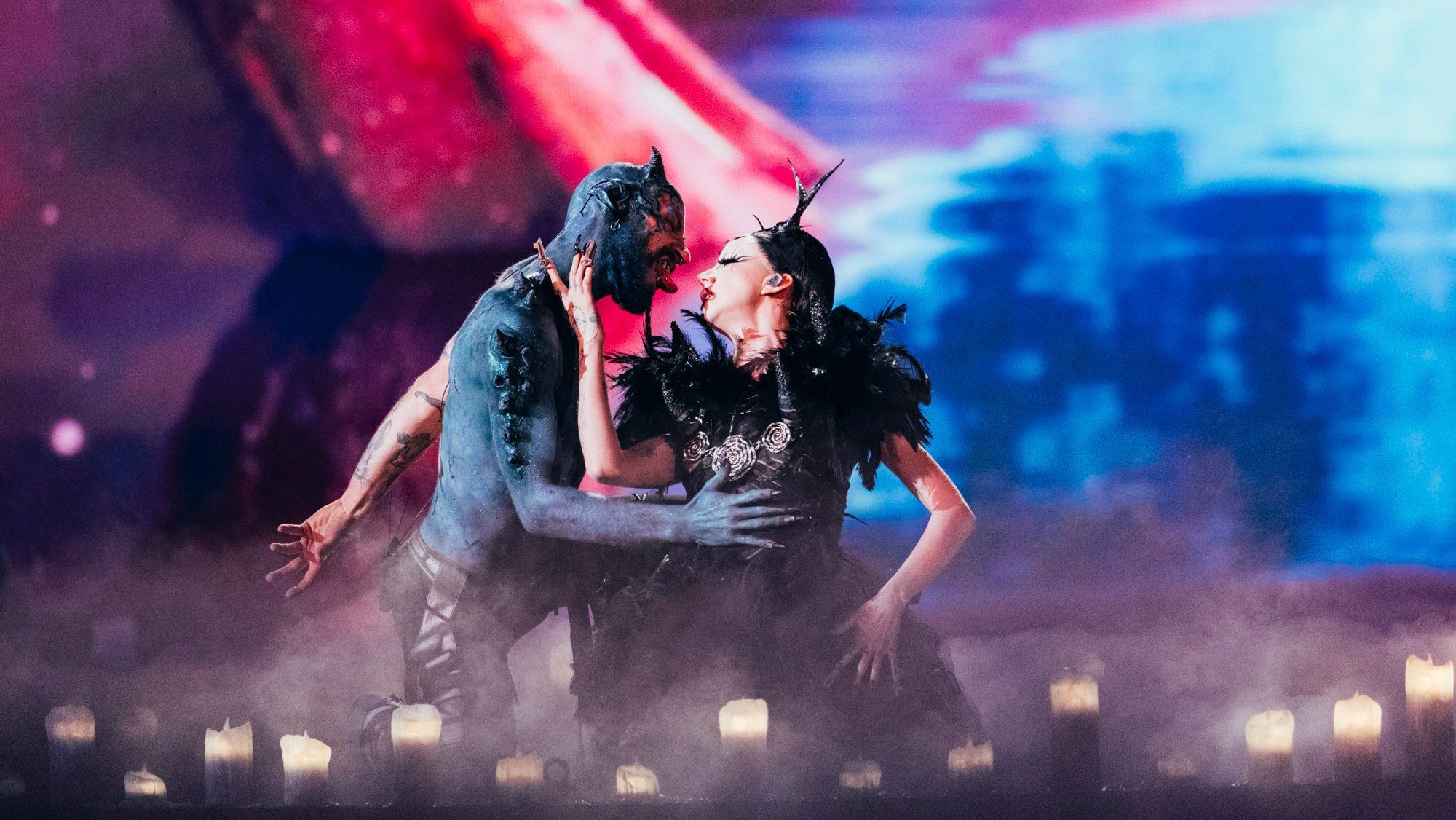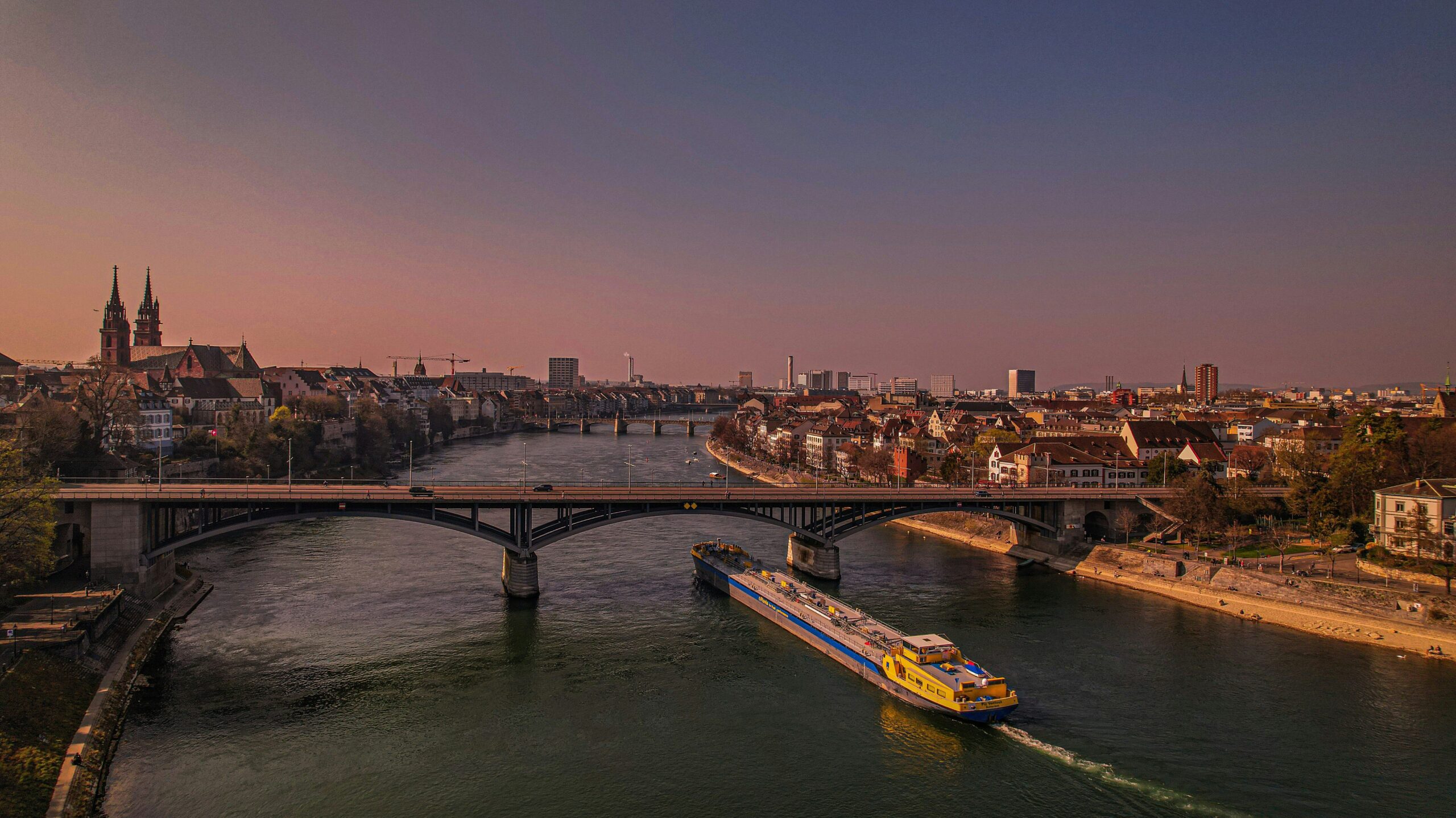Recently updated on May 14th, 2025 at 11:51 am
One of the most iconic events in Europe returns once more: the Eurovision Song Contest. Eurovision 2025 is hosted in Basel, Switzerland, marking the 69th edition of this musical bonanza where 37 countries will compete for the title, proving themselves to the judges and public through a three-minute song.
A household name within Europe but something of a kooky mystery outside it, Eurovision is often likened to a pop Olympics bringing an eclectic mix of high emotions, thousands of sequins and geopolitical rivalries.
From ABBA to Céline Dion, discover famous Eurovision alumni as we dive into the history of Europe’s annual music event, as well as what to expect from Eurovision 2025.


Eurovision history
As television services launched across Europe in the mid-20th century, the European Broadcasting Union (EBU) created the Eurovision Network in 1954 to share and produce common programmes, boosting national broadcasters’ content cost-effectively.
The Eurovision Song Contest began in 1956 with just 7 countries, each performing two songs. After the Soviet Union’s break-up more countries wanted to get in on the action, with a record 25 competing in 1993 and 1994. A pre-qualification round was added in 1996, and a Semi-Final was introduced in 2004 to streamline the growing number of participating countries. By 2008, a second Semi-Final was introduced, allowing 43 countries to take part.
Typically the winning country hosts the next Contest, though others may step in if needed, as the United Kingdom did for Ukraine in 2023.
The rules?
• The song must be original and not publicly released before September 1 of the year prior to the contest.
• The maximum duration is 3 minutes.
• Lyrics and performances must avoid political, commercial, or offensive content.


How does the Contest work?
After two Semi-Finals, the Grand Final is where the top 10 entries from each Semi-Final (plus pre-qualified entries from the ‘Big Five’, France, Germany, Italy, Spain and the UK, as well as the host country) will compete for the trophy. The outcome of the semi-finals are decided by a public vote from participating countries (but viewers can’t vote for their own country), and the winner of the Grand Finale is decided from a combination of jury voting (each country has a panel of professionals that ranks acts) and public vote.
The “Big Five” countries: France, Germany, Italy, Spain, and the United Kingdom. They automatically qualify as the biggest financial contributors to the event.
Which countries perform at Eurovision?
Eurovision 2025 sees 37 countries perform. Participation in Eurovision is open to public service broadcasters that are members of the European Broadcasting Union (EBU). This includes those in nations across Europe and a few outside Europe, such as Israel and Australia, which are active EBU Members.


Eurovision facts & figures
- In its 69 years, over 1,500 songs have taken part in the Eurovision Song Contest. In 2006, Ireland’s Brian Kennedy delivered the 1,000th entry to the contest, appropriately titled Every Song is a Cry for Love. If you would listen to all the songs without a break, you would need nearly 72 hours spare.
- 2001 saw the Contest’s largest ever audience attend; nearly 38,000 people gathered at Copenhagen’s Parken Stadium, witnessing the Estonia’s first ever victory.
- Ratings of the Eurovision Song Contest have varied greatly over the past decades. In 2016, some 204 million people saw at least one of the 3 shows in whole or in part.
- Ireland and Sweden are the two most successful countries in the Contest, tieing at 7 victories each. Close behind, Luxembourg, France, the Netherlands and the United Kingdom have all won 5 times.
- On the flipside, Norway has come bottom of the Eurovision scoreboard 12 times in 1963, 1969, 1974, 1976, 1978, 1981, 1990, 1997, 2001, 2004, 2012 and 2024 – but had three successful years when they won in 1985, 1995 and 2009.
- Though the Eurovision Song Contest took place 68 times, it has 71 winners. In 1969, 4 countries topped the scoreboard with an equal amount of points; the United Kingdom, Spain, the Netherlands and France. With no rules to resolve tie situations, the EBU had to declare all four contestants as the winner (rules were introduced shortly after).
- The most covered (and one of the most famous) Eurovision Song Contest song is Domenico Mudugno‘s ‘Nel Blu Di Pinto Di Blu’, also known as ‘Volare’, entered by Italy in 1958. Though it didn’t win, there are more than 100 different recordings of the song worldwide and it’s been covered by famous stars including Dean Martin, Cliff Richard and David Bowie (the most famous version is likely by Gipsy Kings in 1989).
Famous Eurovision artists
The most famous Eurovision contestants are ABBA, who won for Sweden in 1974 and went on to achieve worldwide success – but there are many well-known artists who competed, but history forgot, such as Céline Dion won for Switzerland in 1988. Other notable acts to compete include Olivia Newton-John (for the UK in 1974), Julio Iglesias (for Spain in 1970), Flo Rida (for San Marino in 2021) and Bonnie Tyler (for the UK in 2021), and Olly Alexander (formerly of the band Years and Years) competed for the UK in 2024.
Many Americans experienced Eurovision for the first time through the Netflix hit, Eurovision Song Contest: The Story of Fire Saga. Starring Will Ferrell and Rachel McAdams, the movie also featured cameos from Eurovision favorites such as Loreen, Alex Ryback, Jamala, Conchita Wurst and Netta.


When is Eurovision 2025?
The Grand Final of the Eurovision Song Contest 2025 will take place in Basel, Switzerland on Saturday 17th May, following the Semi-Finals on Tuesday 13th and Thursday 15th May.
The theme of Eurovision 2025 is Unity Shapes Love, developed by Art Director Artur Deyneuve. He wanted to create a space that made people feel heard and valued, nodding to the Swiss tradition of direct democracy which revolves around listening and dialogue. The Eurovision slogan is ‘United by Music’, and this message will be further expressed through the iconic beating Eurovision heart symbol, which stands for dialogue, unity and the unifying power of music.
Eurovision 2025 favorite acts
Given its history of seven wins, Sweden is up there as the favorite to take the title again. This year’s Swedish entry is “Bara Bada Bastu”, an upbeat ode to sauna culture performed by the KAJ trio from Finland.
Classically-trained Austrian singer JJ’s “popera” song “Wasted Love”, French singer Louane’s ballad “maman”, Dutch entry Claude’s “C’est La Vie” and Israeli singer Yuval Raphael, a survivor of the October 7 attacks, with “New Day Will Rise”, are also high on the bookies’ radar.


How to watch Eurovision 2025
If you’re in the US, you can watch Eurovision 2025 on the streaming service Peacock, and most other countries will be able to tune in on the Eurovision YouTube channel.
The good news is you can vote even if you’re outside of Europe! Voting for the winner will open at the start of the final on May 17 – viewers in participating countries can vote by phone, text message or the Eurovision app (but not allowed to vote for their own country’s act). Viewers in the US and other non-participating countries can vote online or with the app.